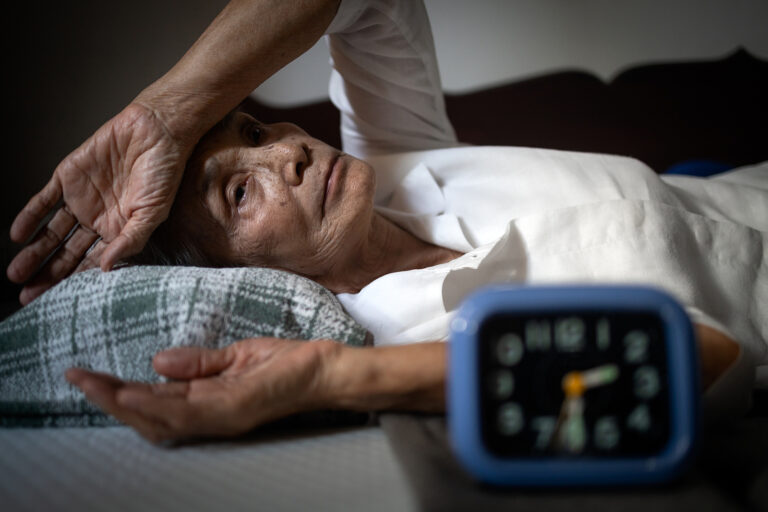According to some studies as many as 50% of seniors battle insomnia. For some seniors insomnia goes away easily, but for other seniors the fight to get good sleep is a constant battle. There are many reasons why seniors develop insomnia, like side effects from medication, depression, or anxiety. Treating the underlying cause of insomnia is necessary, but while that happens there are some things that seniors can do to improve their sleep.
Home care is strongly recommended for seniors that have insomnia. It can help seniors relax and relieve anxiety to have someone in the home with them at night. With home care seniors feel more secure, and a home care provider can help seniors with things like managing medication or preventing falls.
Some other easy ways that seniors can manage or reduce their insomnia are:
Establish a Consistent Sleep Schedule
One of the simplest yet most effective ways to combat insomnia is to establish a regular sleep schedule. Try to go to bed and wake up at the same time every day, even on weekends. This helps regulate your body’s internal clock and can improve sleep quality over time.
Create a Relaxing Bedtime Routine
Developing a calming bedtime routine can signal to your body that it’s time to wind down. Activities like reading a book, taking a warm bath, or practicing deep breathing exercises can help relax your mind and prepare you for sleep.
Limit Screen Time
The blue light emitted by phones, tablets, and computers can interfere with your body’s production of melatonin, a hormone that regulates sleep. To improve sleep quality, avoid screens for at least an hour before bedtime.
Keep Your Bedroom Comfortable
Make your bedroom a sleep-friendly environment. Ensure your mattress and pillows are comfortable, and keep the room at a cool, comfortable temperature. Block out excessive light and noise to create a soothing sleep environment. A small fan or white noise machine can help seniors who are uncomfortable being alone at night relax.
Stay Active
Regular physical activity can improve sleep quality for seniors. Engage in low-impact exercises like walking, swimming, or yoga during the day. However, avoid vigorous exercise close to bedtime, as it can be stimulating.
Manage Stress
Stress and anxiety are common contributors to insomnia. Practice relaxation techniques such as meditation, mindfulness, or progressive muscle relaxation to calm your mind and reduce stress levels. Meditation at night can be very effective at helping seniors relax and fall asleep.
Limit Naps
While short daytime naps can be refreshing, long or irregular napping can disrupt your nighttime sleep. If you need to nap, keep it to around 20-30 minutes and avoid napping late in the day.
Avoid Clock Watching
Watching the clock when you can’t sleep can increase anxiety and make it even harder to fall asleep. Consider turning your clock away from your line of sight to prevent yourself from constantly checking the time. Or, move the clock to another room.
Try Natural Remedies
Some seniors find relief from insomnia with natural remedies such as herbal teas (like chamomile or valerian root) or aromatherapy (using lavender essential oil). Always consult your healthcare provider before trying any new supplements or remedies. A hot bath with lavender or chamomile bath salts can also help seniors fall asleep faster.
If you or an aging loved one are considering hiring home care in San Jose, CA contact the friendly staff at Home Care Professionals today. Call (866)-940-4855
Source 1 / Source 2 / Source 3
- Liver Cancer Symptoms and Risk Factors - April 24, 2025
- Seven Indicators That Your Loved One Could Benefit from 24-Hour Home Care - April 18, 2025
- Creating Visual Cues to Support Independence for Seniors With Alzheimer’s - April 9, 2025




